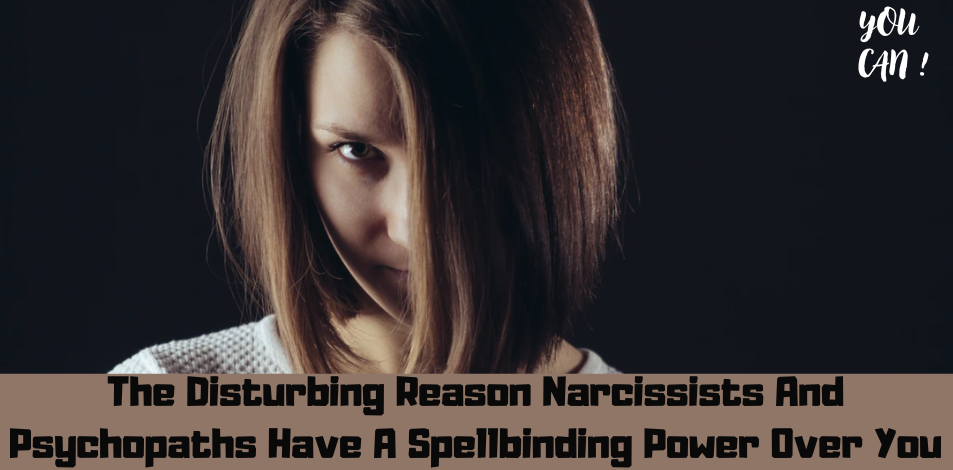
Why did you stay? This is often the first question that comes to mind when someone hears about a bad outcome between a victim and their cruel companion. They wonder why you decided to stay with someone who has shown a pattern of unstable and despicable behavior.
To the outsider, it seems like a simple, logical decision to stay away from anyone who poses a threat or causes psychological harm. However, the reasons why many remain involved in harmful relationships are complex.
Unfortunately, it’s not as simple as “Your behavior is unacceptable. I’m leaving.” Some people have real struggles with this and for legitimate reasons.
Behind the scenes (in our heads), the brain has created a strong narcissistic bond with the psychopath or narcissistic partner. And oftentimes, the last thing he wants to do is leave him. This means that leaving the attacker is not just a cognitive decision (based on thinking), but it is also a decision linked to neurochemical, psychological, and emotional foundations.
Related: The 8 Stages Of Emotional Pain You Go Through When Breaking Up With A Narcissist
When it comes to the brain, when given the “choice” to follow emotions or logic, in circumstances like these, it follows emotions.
Neela found herself alone in the apartment she shared with Brett. He had moved on to someone new and she had no idea how it had happened so quickly or even why. She couldn’t bring herself to say the “A” word (abuse) because she never thought she would be in that position, but she knew it fit the bill. Britt was cruel and cruel, controlling her every decision, preferring to manipulate rather than interact honestly.
Nila remembered how kind, attentive, and generous he was during the first few months. He wasn’t like the man she knew now.
There were days when I felt a glimmer of hope before he left. It was nice sometimes, and I breathed a sigh of relief and thought, “Well, maybe things will be good again.” But then he will resume unacceptable behaviors.
Even though Brett was gone, Neela couldn’t stop thinking about him. She was constantly checking her phone hoping for a text and compulsively stalking each of his social media accounts. I ached for his return. Her friends will try to calm her down: “He was terrible for you! He should be gone.”
Nyla was aware of this, but it was as if those thoughts did not reach her. She understood that she deserved someone who wouldn’t hurt her, but all she wanted was him. Neela felt addicted and no words, not even her own, could change that.
Let’s explore some of the reasons why a perfectly reasonable adult might feel a strong connection to someone who abuses them. It all starts at the beginning of the relationship.
Intermittent reinforcement and force differentials
In 1981, Dr. Donald Dutton and Susan Pinter put forward a theory they refer to as “traumatic interdependence.” Essentially, the theory explained that two features in abusive relationships seem to powerfully shut down the emotional connection that many victims have with their abuser: a power differential and an intermittent “bad-good treatment.”
#tough and gentle
If we examine the intimate relationships of individuals with personality disorders such as psychopathy and narcissistic personality disorder, we often find these patterns in their interactions with colleagues – very good treatment, very poor treatment, dominance, control, and insidious escalating abuse.
Due to poor emotional empathy, individuals with psychopathy and narcissistic personality disorder do not care about how they treat others. They are focused on themselves, their pleasure, stimulation, and comfort, often at the expense of others.
Therefore, the fickle waves of kindness, gentleness, and joy will mix with cruelty, contempt, and hatred. It is an emotional roller coaster to which the victim’s brain responds with neurochemistry that can increase attachment and attachment to the abuser.
#It’s all about strength and me
Abusive relationships tend to involve a huge difference in power. Most people with narcissistic disorders and psychopathy require that they be in the dominant position and will ensure this through manipulation, emotional abuse, or physical violence.
They tend to demand unreasonable control over their partners. Victims and survivors find it difficult to establish a cooperative or fair relationship.
Non-psychological and non-neurological factors
Other factors can strongly contribute to a victim’s decision to stay with the abuser (social and environmental). For example, children, finances, safety, level of aggression of the abuser, fear, sharing a home, family, getting a partner back through stalking, etc.
#Not all bonds are positive – negative bonds are stronger
Relationships with power differentials and fluctuations in treatment create stressful bonds that leave the victim feeling stressed rather than comforted by connection. It’s a bond that a victim or survivor may wish didn’t exist. Some even feel ashamed and responsible for the painful bond.
“I want to leave because he’s hurting me. But I can’t!”
Because we tend to associate connections with positive relationships, the phenomenon of feeling so attached to someone who displays negative behavior (abuse) can be confusing to the victim. However, if he or she is aware that painful attachment is also a type of attachment, but is not based on love, they will not misinterpret the value of the relationship.
For example, some victims assume that because they feel such a strong connection and have gone through so many ups and downs, they must love their abuser. Maybe it means they were meant to be together. They may attribute “soulmate” status to a person based on the chemistry they feel with them. The victim may believe that the attacker loves her in return.




